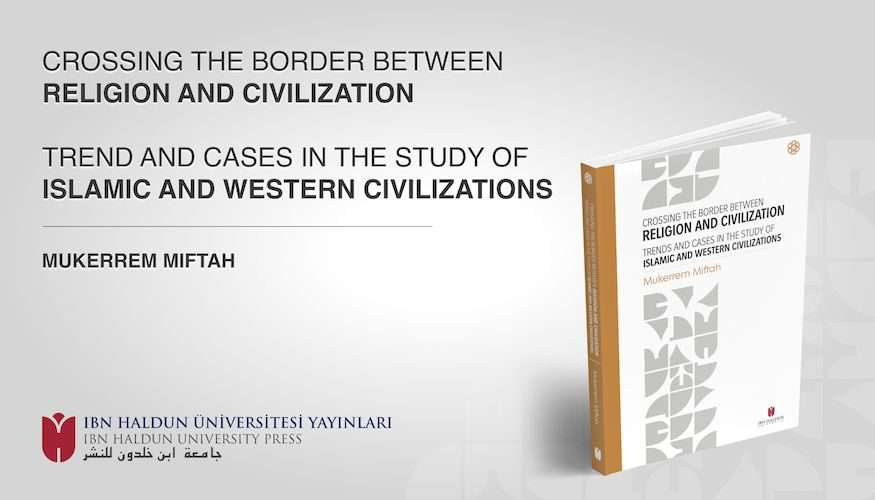


İbn Haldun Üniversitesi Medeniyetler İttifakı Enstitüsü (MEDİT) "Medeniyet Araştırmaları" Doktora Programı mezunumuz Mukerrem Miftah'ın doktora tezi, İbn Haldun Üniversitesi Yayınları arasında okurla buluştu. "Crossing The Border Between Religion and Civilization: Trends and Cases in The Study Of Islamic and Western Civilizations" adını taşıyan kitap, seçkin kitapçılardan ve kitap satışı yapan web sitelerinden temin edilebilir. Arka Kapak Yazısı: The study of world civilizations has always been approached from various perspectives. Of these perspectives, the majority involve, in one way or another, the idea of some form of religion. Among those widely studied world civilizations, Islamic and Western civilizations can present relevant instances. In this regard, there are many researches specifically engaging Islamic and Western civilizations from different perspectives. However, given my review of pertinent literature in “civilization studies”, studies examining the nature, extent, and circumstances of religion playing any role in the making (and conception) of civilization, especially in the context of Islamic and Western civilizations, are relatively inadequate and remains understudied. In the absence of an in depth investigation into this problem, therefore, the present research aims to tackle, and thus, contribute through examining the nature and form of relations implied or expressed between religion and civilization both in the very conceptions of Islamic and Western civilizations. In an attempt to frame this research pursuit, the following three major questions should play some important roles: How did studies engaging Islamic and Western civilizations conceptualized civilization in general and Islamic and Western civilization, in particular? Which aspect of religion is or are implied or expressed in what came to be called Islamic and Western civilizations? What is the implied or expressed relation between religion and civilization in their conceptions of Islamic and Western civilizations? To this end, while chapter two presents a more detailed discussion of some of the points mentioned earlier, in chapter three and four, I specifically deal with cases-individual theories of Islamic and Western civilizations under the three trends. The analysis follows the above questions. Simply put, firstly, I try to figure out how each thinker defined civilization in general; secondly, how each demarcated their own respective civilizations (Islamic or Western civilization); and finally, I conclude with how each dealt the relation between religion and civilization in the context of these two civilizations.